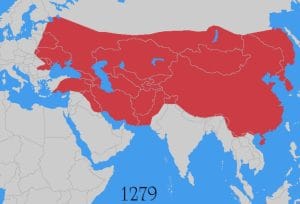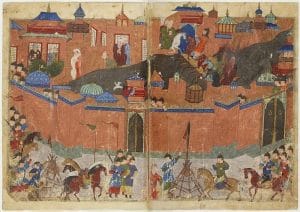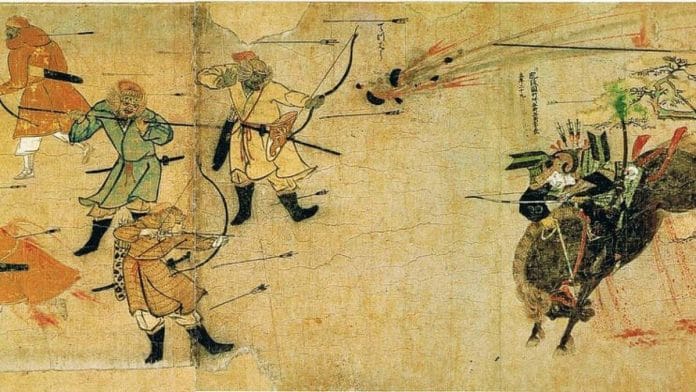Thank you dear subscribers, we are overwhelmed with your response.
Your Turn is a unique section from ThePrint featuring points of view from its subscribers. If you are a subscriber, have a point of view, please send it to us. If not, do subscribe here: https://theprint.in/subscribe/
Deep Rooted Fault Lines
When Americans ousted the Taliban in 2002, the latter slaughtered thousands from among Hazara, the successors of the Mongol invaders still based in Afghanistan. Why? The American assault reminded them of the 800-year-old Mongol invasion.
Forget history. In popular perception, aren’t people flaunting their power and wealth derogated as moguls, the Persian term for Mongols? Jack Weatherford outlines many such examples of historical vindictiveness towards Mongols in his book Genghis Khan and the Making of the Modern World.

Therefore, it wouldn’t surprise many that Serb nationalists regarded the Turkish takeover of Constantinople in 1453 A.D. as the starting point for the Bosnian War of the early 1990s. Turkish rule over the Balkans post 1453 left behind simmering animosities that were waiting to erupt.
Most of us need an excuse to blame our failures on. Easier to live a lie, eh? That’s perfectly human. Problems arise when entire societies start acting vindictively to avenge historical wrongs, real and perceived.
Mongols exemplify this historical punching bag on account of the astronomical devastation they unleashed starting from the early 13th century when Genghis Khan, the scourge of God, stepped out of Mongolian grasslands and left his calamitous footprint on the larger global canvass.
That the Mongols were barbaric marauders who razed countless cities and kingdoms to the ground while killing, brutalizing, and enslaving millions is undisputed. But that’s only one part of this story . . .
Trails of Carnage & Failure Theories
In what marked the end of the Golden Age of Islam, Hulagu, Genghis Khan’s grandson, permanently destroyed the Bayt-al-Hikmah (House of Wisdom, a Grand Library) during the Sack of Baghdad in 1258 A.D. The Bayt-al-Hikmah was established in the late 8th century, and maintained thousands of books on various subjects.

Brutality and ignorance are a catastrophic blend. But not limited to the Mongols alone.
Bakhtiyar Khilji (a Turko-Afghan, not a Mongol) similarly ravaged the ancient Nalanda University in 1193 A.D. Dating back to 427 A.D., Nalanda was the first of the world’s residential universities where 10,000 scholars from various nations flocked to study 9 million books.
No wonder we keep looking at some as mindless marauders. Jack Weatherford depicts how a host of nations still blame the Mongols and their descendants with various names – Tatar, Tartar, Moghul, Mughal, and Moal – for their failures:
- Russians blamed the medieval Tatar rule for technological backwardness vis-a-vis the west and Japan.
- Indians held Mughal greed and exploitation responsible for their failure to stand up to British colonization.
- Persia (Iran) attributed Mongol annihilation of her irrigation system for her backwardness compared to her neighbours.
- Arab politicians of the 20th century regularly invoked Mongol dismantling of their cities and libraries for why the West built the nuclear bomb before them.
- Chinese incriminate the Mongols for why she fell behind Europe and Japan.
Objective Analysis of Failure: The Tough Part
Pointing fingers is easy. Which brings us to the other side of the story, one that is deeply hurting and, therefore, extremely unpopular: Why did the Mongols beat us? Generalizing, we get to: why did we fail?
Rationally speaking, analyzing failure and our shortcomings is the first step towards success. But then, we humans think more with emotions. Logic usually takes a back seat. Because, if you frankly evaluate failure, the responsibility of fixing it is, well, yours! Not many have the broad shoulders for this correction, let alone open minds.
Among other things, civilizations need some kind of morality-infused glue to bind its society together to some minimal level. And a strong, centralized government that takes care of protection. If you cannot safeguard your borders and create a sense of belonging among your citizens, a Hulagu or Bakhtiyar is waiting to happen.
Hulagu was a short sighted barbarian, utterly disinterested in the insights from books that can build enduring empires. Bakhtiyar was either a religious fanatic or a marauder. Neither cared about knowledge or wisdom – Bakhtiyar burned down the books while Hulagu threw them in the Tigris River.
But the ones who built these universities and libraries, and nurtured them over the centuries knew the infinite worth of these centres of wisdom. Were they, the rulers who patronized the all-knowing scholars, totally clueless on what fate befalls an unvigilant civilization?
Parting Comments
At best, history arms you with pearls of wisdom from the past to build at present a solid foundation for the future. At worst, it is a propaganda tool, a stick for selective thrashing. The stick is a dangerous weapon though that, over time, can turn into a Frankenstein monster and hurt the wielder more than the victim.
Is that why some wise guy said, “Happy is the country with no history?”
These pieces are being published as they have been received – they have not been edited/fact-checked by ThePrint.


